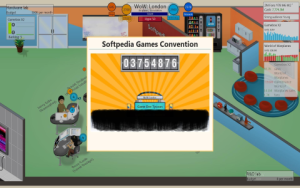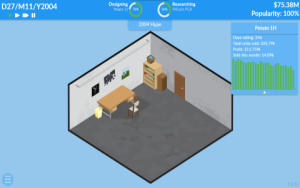game dev story 6 hardware engineers
Okay, so today I decided to dive back into Game Dev Story. It’s been a while, and I figured I’d try a slightly different approach this time. My goal? Six hardware engineers. Yeah, you heard that right. Six. I wanted to see if I could crank out consoles like nobody’s business.
First things first, I started a new game. Duh. I named my company “MegaDev,” because, why not? I hired my initial team, making sure I had a good mix of skills to get the ball rolling. We’re talking a couple of programmers, a writer, a sound guy – the usual suspects.
My first few games were, let’s just say, learning experiences. One was a ninja dating sim that, shockingly, didn’t sell well. Go figure. But I kept at it, releasing games, doing contract work to keep the cash flowing, and slowly leveling up my staff.
The Pivot
Once I had a decent chunk of change and some reasonably skilled employees, I started my hardware engineer hunt. I kept checking the hiring pool, refreshing it, and eventually, one by one, I snagged those engineers. It took some time and a good bit of money, but I finally got all six.
Getting them was only half the battle. I had to train them, which, as anyone who’s played Game Dev Story knows, is a serious money sink. I used every training method. Reading books, playing games. Took ages.

But, I’ll be honest, training them all up was a grind. It felt like I was spending more time in the training menu than actually making * i keep training them.
The Hardware Hustle
With my six hardware engineers finally assembled, I started developing my first console. I threw a ton of money at it, maxing out the specs as much as I could. I named it “The MegaBox” (creative, I know).
And, let’s not talk about the amont of bugs they got. It’s pain in ass.Debuging and debuging.
The results? Well, it sold… okay. Not a massive hit, but definitely better than my previous consoles. The development costs were astronomical, though. I was in the red for a while, frantically doing contract work and releasing cheap games just to stay afloat.
I kept churning out consoles, each one slightly better than the last. My engineers were slowly leveling up, their skills improving with each project. But it was a slow burn. A very, very slow burn.
Was it Worth It?
Honestly? I’m not entirely sure. The six hardware engineer strategy definitely produces better consoles in the long run, but the initial investment is HUGE. It’s a high-risk, high-reward kind of deal. You’ll be hemorrhaging money for a while, and you need a lot of patience. It’s a fun challenge, but maybe not the most efficient way to play the game.
So, that’s my Game Dev Story experiment for today. Six hardware engineers: a bold move, a lot of grinding, and a slightly questionable return on investment. I might try a different approach next time, maybe focus on super-specialized game genres or something. We’ll see!







